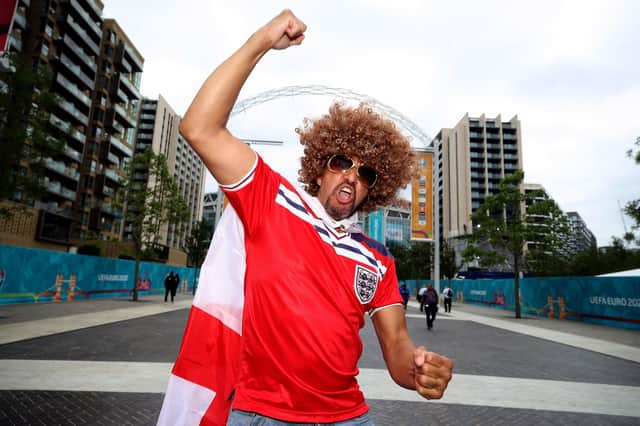England vs Germany: Chichester psychology professor highlights the key to winning penalty shoot out in Euro 2020


The advice of Prof Iain Greenlees, of the University of Chichester, comes as England prepare to face Germany in the knock-out round in Euro 2020 this evening.
Despite winning their last two shoot-outs in matches, England lost to Germany on penalties in the semi-final of Italy in 1990 and in the European championships in 1996 – at Wembley where the game will be played today.
Advertisement
Hide AdAdvertisement
Hide AdThe professor said: ‘With all sporting competitions psychology plays a huge role in determining an individual's performance levels and the eventual outcomes. However, given the huge amount of pressure that is involved in penalties then I also think that the role of psychology is especially important in shoot-outs.
‘The consequences of not scoring can be huge for the team and personally (and we only have to think that Gareth Southgate is still fending off questions about his miss some 25 years later that we can imagine the impact of missing), there is no place to hide and you have a lot of time to think about what you need to do as you stand on the half-way line waiting for your turn.
‘There is a long, solitary walk to the penalty spot and then there can be all sorts of delays before the ref blows their whistle and you can go. That is a lot of time to think about what you are going to do and a lot of time to block out the internal and external distractions you are placed with. And this is all after, potentially, 120 minutes of high-intensity, high stakes competition.
‘What research does tell us is that those people who can control their anxiety levels, who focus on what they will gain from being successful rather than the consequences of failure and who pick their spot and focus on that will tend to be the players who are successful.’
Advertisement
Hide AdAdvertisement
Hide AdProf Greenlees said preparation is key and believes practising spot kicks is not enough – instead players should practice penalty shoot-outs including having a competition and all that is involved in the real thing.
‘One suggestion is that simulated penalty shoot-outs such as waiting on the half-way line, walking to the spot, interacting with ref and goalkeeper can be a good way of getting the players to practice what they are focusing on, what they are saying to themselves and how they are carrying themselves,’ he said.
‘Many will say that you can't practice for the pressure of actual penalties but this is at least providing an opportunity for players to practice the processes they go through on the day.’
Deciding on where to aim the ball and sticking to that is also important, he said.
Advertisement
Hide AdAdvertisement
Hide AdThe professor believes there are reasons for optimism after recent England victories on penalties but warned: ‘This is the Germans. And no matter how well prepared our players may be then they will also have prepared well.
‘There still lingers (at least in the media and in bar conversations) the dubious view that the English will always fall short in penalties against them.’
Plus the German keeper Manuel Neuer wears red – proven to be the most successful colour worn by goalies making saves in shoot-outs. This, according to research, is due to it being a ‘subtle, unconscious sign of danger or warning so this activates a small amount of anxiety in the penalty taker’.
A message from the Editor, Mark Waldron
You can subscribe here for unlimited access to our online coverage, including Pompey, for 27p a day.
Comment Guidelines
National World encourages reader discussion on our stories. User feedback, insights and back-and-forth exchanges add a rich layer of context to reporting. Please review our Community Guidelines before commenting.
